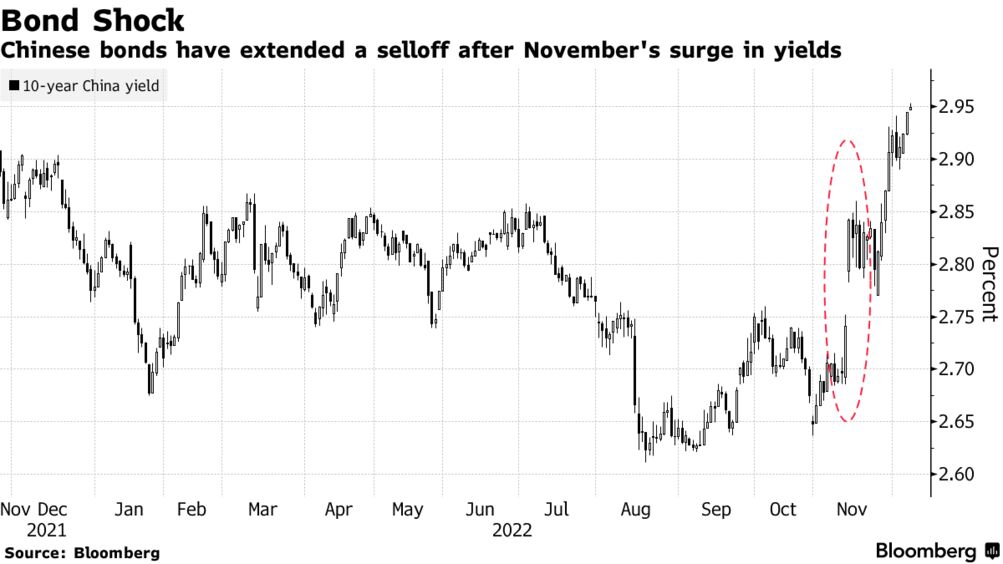
Cina’s onshore bond traders cut off from pricing and transaction services amid regulatory tightening on financial data
- Bond
traders said third-party platforms have stopped providing some
important services from Wednesday after receiving notices from
regulators
- The
move will hit liquidity and transactions in the world’s second-largest
bond market,
expert says
China’s onshore bond traders have been cut off from accessing real-time information from financial-data services providers, forcing them to resort to chat groups on social media for trading, a sign of Beijing’s tightening grip on data security and stricter financial regulation.
A number of traders told the Post they were unable to use real-time pricing and other trading functions at third-party platforms such as Quebee and DealingMatrix. Wind Information only showed prices provided by market makers, while agents’ pricing and transaction information could not be accessed on Wednesday morning.
The move underscores Beijing’s tightening grip on data security following the recent revamp of financial regulators, dealing a blow to liquidity and transactions. China’s US$21 trillion bond market is the world’s second-largest, with foreign funds owning 3 per cent of the securities. More than 1.25 trillion yuan (US$180.9 billion) changed hands daily in 2022, according to government data.
The move to stop pricing services could be due to issues related with ownership and usage rights of financial data, said Chen Ke, chief analytics officer at CSPI Ratings, a Hong Kong-based ratings agency. “In the future, regulators will have stricter requirements on the security, legality and usage standards of financial data,” he said.
Last week, Chinese lawmakers announced the creation of a national data bureau at the annual National People’s Congress to oversee the security of information and coordinate the integration, sharing, development and utilisation of data resources.
It is also follows the reorganisation of the nation’s major financial regulators to minimise arbitrage in the financial industry and improve market oversight.
Some money brokers, which facilitate transactions between buyers and sellers, informed clients that they had received notices from regulators to stop revealing bond prices publicly from Wednesday, according to market participants and media reports.
On Wednesday morning, social media chat rooms had already emerged on WeChat and QQ with pricing information.
Wind Information, the Shanghai-based financial information and services provider, said that it had created chat rooms on its platform for traders to manually match dealers. The company, however, declined to comment on queries from the Post.
One trader said that he could not use these chat rooms as his company’s rules prevent him from using mobile phones during trading hours and doing transactions in such groups.
Such chat rooms have served as important market-making channels for bond traders a few years ago, but they are inefficient, according to traders.
“If the bond market cancels the bond pricing services of Quebee, Wind and DM, simply put it – back to 2015,” wrote a user on Weibo, China’s Twitter.
“90 per cent of the groups are full [and will not let more people join],” said another post on WeChat.
While onshore traders rely on pricing information on platforms such as Quebee and Wind to do transactions, undertaking manual trading is like “buying bonds blindly” as traders are uncertain about the pricing information in the market, according to Chen at CSPI Ratings. “In the short term, it will have a huge impact, especially on liquidity and transactions of all non-government bonds.”
But he added the move may align China’s bond market more with international standards, as mature bond markets mainly make transactions through market makers who provide pricing, which is beneficial for market stability and efficiency in pricing discovery.




No comments:
Post a Comment
Note: Only a member of this blog may post a comment.